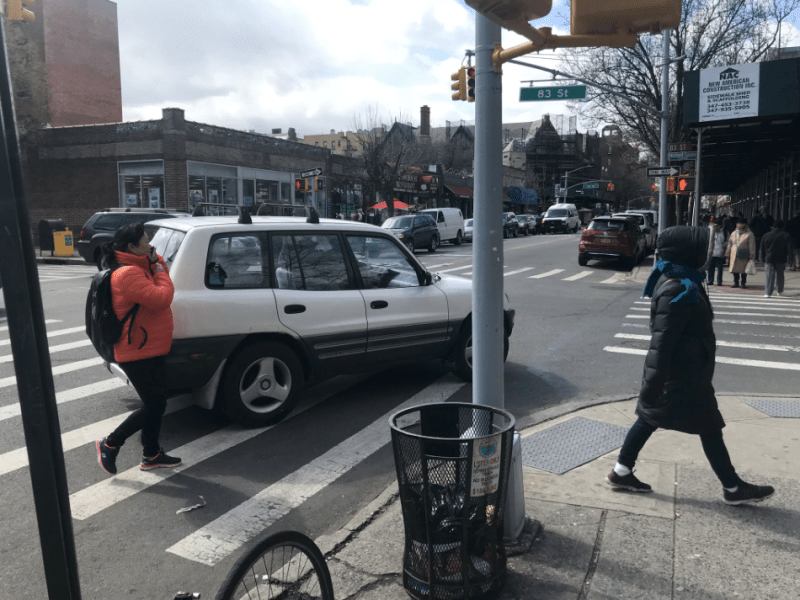As pedestrian deaths have soared in the U.S., the message most Americans hear is that people on foot only have themselves to blame.
Helped along by public officials willing to publish unsubstantiated hokum about "drunk pedestrians," media outlets like the Today Show made "distracted walking" out to be the real public safety threat.
More recently, solid research has identified very different causes contributing to the rise in pedestrian fatalities. A recent report by the Insurance Institute for Auto Safety found that the growth in SUV sales explains a significant share of the increase in pedestrian deaths.
Now an excellent investigative report by the Detroit Free Press and USA Today reveals how the National Highway Traffic Safety Administration knew about the risks of SUVs for years -- and did nothing.
A 2015 NHTSA report reviewed a range of research showing that people are two to three times more likely to be killed when struck by an SUV than by a typical passenger car. For children, there's an even greater four-fold disparity in mortality. The finding "has not been widely shared," the papers report.
That year, SUV sales overtook sales of sedans in the U.S., continuing a decade-long trend.
At around the same time, the NHTSA did announce a plan to score vehicles on pedestrian safety, but the safety rating for people outside the vehicle never took hold. In Europe, automakers must meet pedestrian impact standards, which has never been the case in the U.S.
The new score was supposed be added this year but has gone nowhere under the Trump administration, the Freep reports:
NHTSA did not respond to questions about what caused the delay, although the agency has been without a permanent administrator since President Donald Trump took office. In a statement to the Free Press this week, the agency said it is "working on a proposal for a standard that would require protection against head and leg injuries for pedestrians impacted by the front end of vehicles."
An NHTSA official did say that the new standard will be discussed this summer -- but the meeting hasn't been scheduled.






